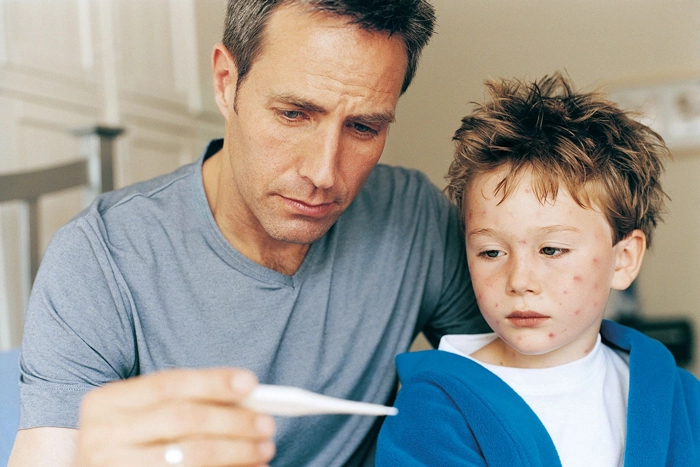List of All Services Offered By Prime Medic
List of All Services Offered By Prime Medic
List of All Services Offered By Prime Medic
List of All Services Offered By Prime Medic
List of All Services Offered By Prime Medic
List of All Services Offered By Prime Medic


All parents want to provide their children with the best care. It can be devastating when a child falls ill, even if the illness is very minor. For first time parents, it can be a source of great worry and you may even start wondering what you did wrong for your child to fall sick in the first place! However, it is important to remember that even the strongest and fittest of individuals can fall victim to viral infections and children are no exception. In fact, because children are less conscientious about maintaining proper hygiene and washing their hands frequently, they may actually be more at risk of picking up viruses and bacteria than you are!
If your child is sick and you need to take time off work to tend to them, Prime Medic offers you the chance to get your medical certificate online in just a few quick steps. Before we discuss how you can get your online medical certificate, let's take a look at the ten most common childhood illnesses your children may face:
Perhaps the most common illness of all, colds are typically spread via airborne transfer of certain viruses like rhinovirus. If your child has come home with a case of the sniffles, and is complaining of a sore throat or muscle aches, they might have gotten infected with the virus. The common cold usually resolves itself on its own, and all that's required is plenty of fluid and rest. You may make your child a bowl of their favourite warm chicken soup to help soothe the sore throat and bring relief to their symptoms.
Another very common childhood illness, children are actually more prone to getting ear infections than adults. This is because the Eustachian tubes that connect their middle ear to the throat are shorter, and viruses that cause the cold can easily travel to the ear, causing an ear infection. Moreover, your child may also pick up swimmer's ear from their swimming lessons, which is a frequent cause of ear infections in the warmer months. If your child is complaining of pain in the ear, it is typically a good idea to get in touch with a doctor for an accurate diagnosis.
An illness that may also occur in adults but is most common in children, chickenpox are characterised by fever, itchy red spots on the body and face and a headache, runny nose and cough. Most children with chickenpox will need to stay home from school as the virus that causes the illness is highly contagious, but will usually not need to see a doctor. Symptoms of chickenpox can often be eased with soothing measures, such as applying gentle lotions to help with itching, staying well-hydrated, getting adequate rest, and speaking to a doctor or pharmacist about suitable over-the-counter options for pain or fever relief.
The flu is caused by the influenza virus and is often mistaken for the common cold. However, flu symptoms usually appear more suddenly and can be more severe, with common signs including sudden fever, sore throat, fatigue, chills, and body aches. Managing the flu often involves rest, staying well-hydrated, and monitoring symptoms. For personalised advice on flu prevention or treatment, it's best to consult a qualified healthcare professional.
Another illness that is very common in children of all ages, stomach flu or gastroenteritis is caused by a virus (often norovirus) and causes symptoms like abdominal pain, vomiting and diarrhea. Most cases of stomach flu resolve on their own and require little more than rest and care and replenishing the fluids the child is losing by vomiting or diarrhea. If your child is unable to keep anything down, try giving them only a tablespoon of electrolyte solution every 15 minutes and gradually increase the amount instead of making them drink too much liquid at one time.
When you're caring for a sick child, you don't have the time to head down to your local GP to get a medical certificate to present to your employer. This time could be better spent caring for your sick child! Luckily, Prime Medic allows you the chance to quickly get an online medical certificate without having to move from your child's bedside. Simply log on to your account (or create one if you haven't), select the type of certificate you need (sick leave or carer's leave), fill in a short questionnaire about why you need the certificate and choose a consultation time that best suits you. At your appointed time, an online GP will be in touch with you to confirm some details after which your certificate will be emailed to you.
Written By
Bachelor of Medicine and Bachelor of Surgery, AMC
CEO, Founder and Chief Medical Officer at Prime Medic
Dr. Mohsin leads clinical governance and quality at Prime Medic. He works on improving digital access to evidence based medical advice and timely follow up. His aim is to help patients get clear guidance that is accurate, current, and easy to act on, no matter where they are.
View Profile